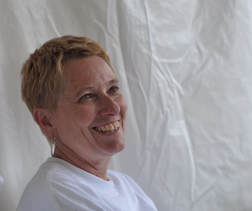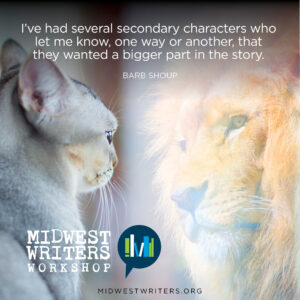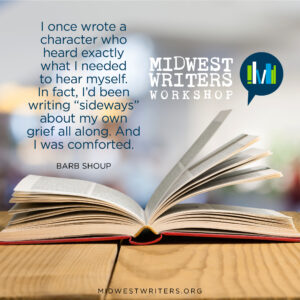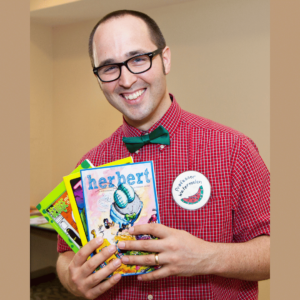 Barbara Shoup is the author of eight novels for adults and young adults, most recently An American Tune and Looking for Jack Kerouac, and two books about writing, A Commotion in Your Heart: Notes about Writing and Life and Novel Ideas: Contemporary Authors Share the Creative Process. Her creative nonfiction has been recently published in Atticus, Ocotillo Review, and Another Chicago Magazine. She is the Writer-in-Residence at the Indiana Writers Center and a faculty member at Art Workshop International.
Barbara Shoup is the author of eight novels for adults and young adults, most recently An American Tune and Looking for Jack Kerouac, and two books about writing, A Commotion in Your Heart: Notes about Writing and Life and Novel Ideas: Contemporary Authors Share the Creative Process. Her creative nonfiction has been recently published in Atticus, Ocotillo Review, and Another Chicago Magazine. She is the Writer-in-Residence at the Indiana Writers Center and a faculty member at Art Workshop International.Barb will teach the sessions “What is a Young Adult Novel, Anyway?” and “Secondary Characters: Where They Come From, What They Do, and How to Make Them Real.” She’s also on the manuscript evaluation team.
Q&A with Barbara Shoup
Barb Shoup has been a pillar in the Indiana writing community for decades. We are delighted to have her as part of the faculty for our anniversary celebration. In this interview she gives us a peek into her writing process, and the power writing has had in her life.
MWW: How do you know when your secondary characters are getting too noisy? What’s a good way to tell if they need to be trimmed back or brought forward?
 BS: I don’t think I’ve ever had a secondary character that I’ve thought of that way. But I’ve had several secondary characters who let me know, one way or another, that they wanted a bigger part in the story. In An American Tune, Bridget started out as no more than a person who helped Jane carry in her things when she moved into the dorm but had such a strong voice and presence that I scrapped the plan for a roommate to become important and let Bridget take over. In Wish You Were Here, Stephanie started out as a name on the list of people commenting on what might have happened to Brady, a kid who ran away. Just one of a gang of friends. But as the book evolved, she became crucial to the main character Jackson’s story. When I finished the first draft, I had to go back through and find places to include her in ways that signaled the reader that she was someone they should be paying attention to.
BS: I don’t think I’ve ever had a secondary character that I’ve thought of that way. But I’ve had several secondary characters who let me know, one way or another, that they wanted a bigger part in the story. In An American Tune, Bridget started out as no more than a person who helped Jane carry in her things when she moved into the dorm but had such a strong voice and presence that I scrapped the plan for a roommate to become important and let Bridget take over. In Wish You Were Here, Stephanie started out as a name on the list of people commenting on what might have happened to Brady, a kid who ran away. Just one of a gang of friends. But as the book evolved, she became crucial to the main character Jackson’s story. When I finished the first draft, I had to go back through and find places to include her in ways that signaled the reader that she was someone they should be paying attention to.
MWW: Sometimes a character can get lost in the shuffle in the course of a novel. What’s a good strategy for keeping track of your characters from scene to scene?
BS: I make (and refine over the course of writing a novel) a spreadsheet to help me see what I need to see. Basically, it works like this: I type the first line of the chapter, do a brief summary of what happens in the chapter, and type the last line of the chapter. Then skip a line and do the next one—all the way through the book. A couple of things happen. 1) The part of my brain not engaged in this anal-retentive process notices things, like—hey, I haven’t seen Bob—or whomever—for a while. 2: When I’ve gone all the way through the book, I highlight the chapters where Bob appears. If there are significant blank spaces, I ask myself, should we see him somewhere? If so, does he need a scene, could he just drive by, send a text or be part of a flashback? You can track and highlight all sorts of things on the spreadsheet; cc The process can be mind-numbing and it takes forever, but once you’re done, you’ll have had loads of moments of insight about what’s working and what’s not. You end up with a very specific and manageable list of revision tasks and, as you proceed with the revision, you’ll be able to find things a whole lot easier than leafing through the manuscript.
MWW: Talk about a time you edited something out of a book that was difficult. Why did you make the decision to remove it and how did it change the story?
BS: Both Stranded in Harmony and Everything You Want started out as multiple points of view novels. In each case, I (eventually) realized that the youngest person in the story had the most at stake and switched to a single point of view. The voices worked instantly, so I knew it was the right thing to do. But I had to rethink various aspects of the story in terms of if/how they affected the main character and cut them if they didn’t. As a result, I cut a lot of stuff I really liked. But as I worked back through the book, I found that the important things worked their way into the book by way of dialogue and scene as experienced, reflected on or remembered by the main character.
MWW: Please tell me about a time when working on a project changed you fundamentally.
 BS: A friend gave me the idea for Looking for Jack Kerouac when he decided he didn’t want to use it himself: a high school senior discovers On the Road, learns that Kerouac lives in Florida and takes off in search of him. I attempted to write the story more or less as my friend imagined it but couldn’t make it work and put it away. Not long afterward, one of my sisters was diagnosed with terminal cancer and I spent a lot of the next year helping to care for her. She had two teenage sons, the same age as the main character and his brother in the novel. Not long after she died, I thought, what if that happened to their mother—and, suddenly, the book came to life. Toward the end, Kerouac said to the main character exactly what I needed to hear myself. In fact, I’d been writing “sideways” about my own grief all along. “You’ll never get over it,” he said. “Why would you?” And I was comforted. This experience taught me in the most visceral way the difference between a good idea and a good idea that addresses my own material.
BS: A friend gave me the idea for Looking for Jack Kerouac when he decided he didn’t want to use it himself: a high school senior discovers On the Road, learns that Kerouac lives in Florida and takes off in search of him. I attempted to write the story more or less as my friend imagined it but couldn’t make it work and put it away. Not long afterward, one of my sisters was diagnosed with terminal cancer and I spent a lot of the next year helping to care for her. She had two teenage sons, the same age as the main character and his brother in the novel. Not long after she died, I thought, what if that happened to their mother—and, suddenly, the book came to life. Toward the end, Kerouac said to the main character exactly what I needed to hear myself. In fact, I’d been writing “sideways” about my own grief all along. “You’ll never get over it,” he said. “Why would you?” And I was comforted. This experience taught me in the most visceral way the difference between a good idea and a good idea that addresses my own material.
MWW: What books have helped you most to become a writer and/or develop your craft?
BS: On Becoming a Novelist, John Gardner; Writing Down the Bones, Natalie Goldberg; Bird by Bird, Anne Lamott, and If You Want to Write, Brenda Uleland, were very helpful in the beginning. Recently, I’ve found A Swim in a Pond in the Rain, George Saunders, and Novelist as a Vocation, Huraki Murakami to be full of wonderful insight about writing and the writing life.
MWW: Your turn! What question do you wish that someone would ask you about writing, but nobody has?
BS: How is publishing different for novelists, as opposed to short story writers, essayists or poets?
If you write only novels, investing yourself in just one writing project at a time—which for the most part I do—launching the finished book into the world is harrowing because there’s so much at stake. Rejection can mean the loss of (many!) years of work. Stories, essays and poems bring closure more quickly and the writer of those forms usually has a number of pieces circulating at a time. This doesn’t necessarily make rejection easier, but it does mean that they’re more likely to experience acceptance of something more frequently than novelists do.
Stay tuned! We’ve got more Q&As with our All-Star faculty members.
REGISTER NOW!
EXCITING NEWS!
MWW is dedicated to building a community where writers can network with others and grow.



